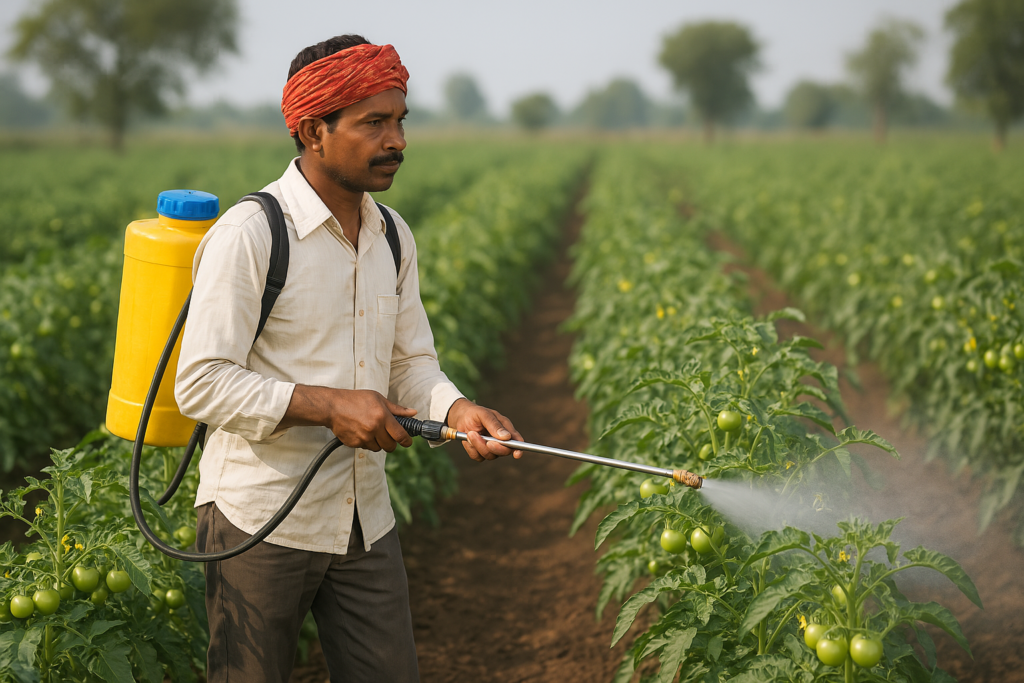Introduction
Pesticides have played a significant role in increasing agricultural productivity by controlling pests and diseases. However, their excessive and unregulated use has led to severe health and environmental concerns. In India, both farmers and consumers must become aware of the dangers posed by chemical pesticides. The rising number of cancer, neurological disorders, reduced sperm counts in males, and ovary fertilization problems are becoming critical health concerns. Similar issues are being observed in the ecosystem, where animals, birds, and micro flora suffer from disturbances due to pesticide exposure. These cases serve as a clear warning that urgent measures are needed to ensure food safety and ecological balance.
Health Hazards of Pesticides
The excessive use of insecticides, fungicides, and herbicides in agriculture has led to alarming health issues among humans. Studies have linked prolonged exposure to pesticides with:
- Cancer – Chemicals such as glyphosate and organophosphates have been associated with various types of cancers, including leukemia, lymphoma, and breast cancer.
- Neurological Disorders – Pesticides interfere with the nervous system, leading to conditions such as Parkinson’s disease, cognitive impairment, and developmental disorders in children.
- Hormonal Disruptions – Certain chemicals in pesticides act as endocrine disruptors, affecting hormonal balance and reproductive health. Research indicates that pesticides can reduce sperm count in males and cause ovary fertilization issues in females.
- Respiratory Problems – Farmers and individuals living near pesticide-sprayed fields often suffer from breathing difficulties, asthma, and other lung-related ailments.
Environmental Consequences
The damage caused by chemical pesticides extends beyond human health. Their impact on the agricultural ecosystem is devastating:
- Destruction of Microflora – Pesticides eliminate beneficial microorganisms in the soil, reducing fertility and natural disease resistance.
- Water Contamination – Residues from pesticides seep into groundwater and rivers, affecting aquatic life and entering the food chain.
- Decline in Pollinators – Bees, butterflies, and other pollinators crucial for food production are severely affected by pesticide exposure, leading to reduced crop yields.
- Harm to Wildlife – Pesticides accumulate in the bodies of animals and birds, causing reproductive failures, genetic mutations, and weakened immune systems. Studies show that persistent organic pollutants (POPs) like DDT bioaccumulate in predatory species, leading to population declines.
- Resistant Pests – Overuse of chemical pesticides leads to the development of pesticide-resistant pests, forcing farmers to use even stronger chemicals, creating a vicious cycle.
The Need for Residue-Free Food
Vijaykumar M. Sarur
M.Sc. Agro-chemicals

